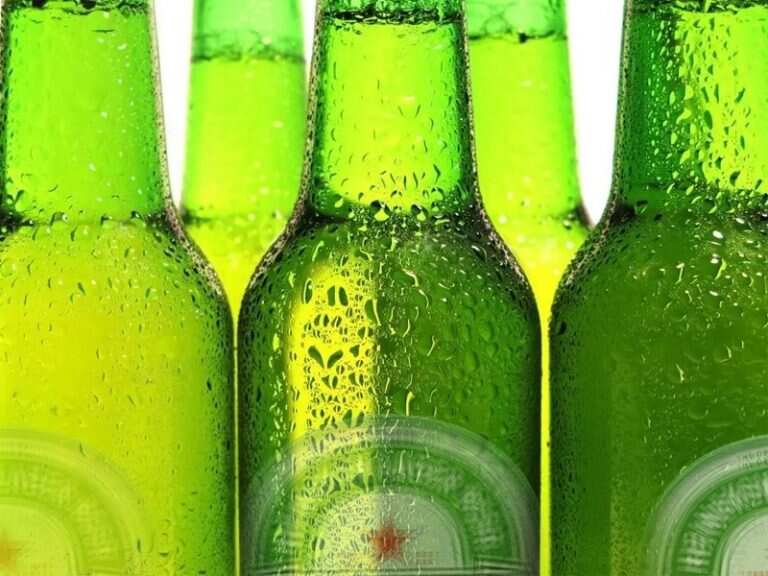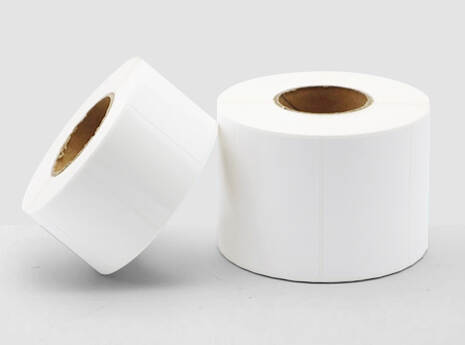Email cannot be empty
Password cannot be empty
Email format error
Email cannot be empty
Email already exists
6-20 characters(letters plus numbers only)
The password is inconsistent
Email format error
Email cannot be empty
Email does not exist
6-20 characters(letters plus numbers only)
The password is inconsistent


What Are Wash-Off Labels and Why They’re Changing Sustainable Packaging
Imagine running a beverage company that wants to reuse its glass bottles to cut costs and reduce waste. The bottles come back from customers—but the old paper or plastic labels are still glued on tightly. Scraping them off takes time, chemicals, and money.
This is where wash-off labels come in. They’re designed to come off cleanly during the bottle-washing process, making reuse and recycling much easier. If your business is trying to build a more sustainable packaging system, understanding this label technology could make a big difference.
What Are Wash-Off Labels?
Wash-off labels are specially engineered product labels designed to detach cleanly from containers—usually glass or PET—when exposed to hot water or alkaline washing solutions. Unlike traditional labels that use permanent adhesives, wash-off labels use a removable adhesive system that holds during product use but releases completely in a controlled wash process.
These labels leave no glue residue and don’t damage the container surface, which means bottles and jars can be easily reused or recycled.
Put simply, wash-off labels help brands close the loop on packaging.

How Wash-Off Labels Work
The secret behind wash-off labels lies in their multi-layer construction and unique adhesive technology.
-
The label face material (such as film or paper) is chosen to withstand handling and moisture during the product’s shelf life.
-
The wash-off adhesive is designed to release when exposed to hot water (typically 65–80°C) or a mild alkaline solution for a short period (around 1–2 minutes).
-
During bottle washing, the adhesive dissolves or loses its tack, allowing the label to float off the container.
After washing, bottles come out clean and residue-free, ready to be refilled or sent for high-value recycling. The removed labels and adhesive can be filtered out from the wash water and disposed of properly.
Why Wash-Off Labels Matter for Recycling
Recycling systems demand clean, uncontaminated materials. Traditional labels can cause major problems:
-
Adhesive residue can clog recycling machinery
-
Label fragments can contaminate recycled glass or plastic
-
Removing labels manually is labor-intensive and costly
Wash-off labels solve these issues by ensuring bottles are label-free before entering the recycling stream. This helps:
-
Increase the quality and value of recycled material
-
Reduce waste and energy used in cleaning steps
-
Enable closed-loop bottle reuse programs
For industries aiming to meet sustainability targets, switching to wash-off labels can directly improve their environmental performance metrics.
Benefits of Using Wash-Off Labels
Here are the main advantages companies see after adopting wash-off label technology:
-
Faster cleaning and processing — Bottles can be cleaned in bulk without manual scraping.
-
Preserves container quality — No scratching or etching from abrasive cleaning.
-
Reduces glue contamination — Keeps washing equipment and recycling lines clean.
-
Boosts brand image — Shows consumers your commitment to sustainable packaging.
-
Complies with recycling standards — Many recycling associations (like APR) encourage wash-off label use.
When scaled across thousands or millions of units, these benefits translate into real operational savings and environmental impact reduction.
Common Applications of Wash-Off Labels
Wash-off labels are already used by brands across multiple industries:
-
Beer and beverage glass bottles — The most widespread application, especially in bottle return programs.
-
Reusable milk bottles — Helps dairies collect, wash, and refill bottles efficiently.
-
Cosmetics and personal care containers — Allows premium glass jars to be refilled or recycled.
-
Food packaging jars and cans — Simplifies cleaning for reuse systems.
This versatility means wash-off labels for glass bottles and other packaging are becoming a cornerstone of the circular economy.
How to Choose the Right Wash-Off Label Supplier
Not all wash-off labels are the same. To get consistent performance, consider these criteria when selecting a supplier:
-
Material compatibility — Labels should suit your container material (glass, PET, PP) and your washing conditions.
-
Recycling compliance — Look for adhesives and materials that meet APR or similar recycling standards.
-
Customization capabilities — Your supplier should offer various shapes, sizes, and print finishes to match your brand design.
-
Durability during use — Labels must resist moisture, abrasion, and shipping stress before being washed off.
-
Quality assurance and delivery — Choose a manufacturer with strict QC processes and reliable lead times for large orders.
By evaluating suppliers on these points, you can avoid performance issues and make sure your sustainability goals stay on track.
Siga's Wash-Off Label Solutions
Siga is a trusted wash-off label manufacturer and supplier serving brands that want to build smarter and more sustainable packaging systems.
Our wash-off labels are designed to deliver both durability during product use and easy removal during container washing. Here’s what sets Siga apart:
-
Custom engineering — Tailored label materials, sizes, shapes, and adhesive systems for your specific bottles and wash conditions.
-
Sustainability-focused design — Materials that support bottle reuse and meet global recycling standards.
-
High-quality printing — Full-color, high-resolution graphics that maintain your brand image.
-
OEM/ODM support — From design to mass production, we provide complete labeling solutions for your supply chain.
Whether you’re in the beverage, cosmetics, or food industry, Siga can help you transition to wash-off labels that save costs, improve recycling efficiency, and strengthen your eco-friendly reputation.
Want to see samples or get a quote? Contact Siga's team to discuss your project.
Final Thoughts
Wash-off labels are more than just a packaging trend—they’re a practical tool for making reuse and recycling programs work at scale. If your company is looking for ways to reduce packaging waste and meet sustainability goals, switching to wash-off labels could be the easiest win you’ll ever get.
Are you exploring sustainable label solutions like wash-off labels? Share your challenges or questions in the comments—we’d love to hear from you.

